Turkey has emerged as one of the destinations for medical tourism as the country tries to boost tourism revenue.
History fanatics, adrenaline junkies, sunbathers and foodies are all in for a treat when heading for a holiday in Turkey, but the nation is also drawing tourists that are seeking to avail Turkey’s competitive edge in medical tourism.
Today, Turkey is the world’s sixth top destination in terms of tourist numbers.
Out of the roughly 35 million tourists, who visited Turkey last year, around 188,095 came for surgical procedures, from hair transplants and liposuction to cancer and orthopedic treatment, according to the World Tourism Organization (WTO).
The number of medical tourists who visited Turkey in the first six months of 2014 totaled 162,445 with revenues reaching $328 million.
“Currently, more than 1,000 patients travel to Turkey every year to take advantage of the medical services we offer,” said Fatih Ozturk, the project manager of VisitandCare.com, a patient and doctor matching service which helps visitors from the Middle East and Europe.
Meanwhile, those from less-developed nations are attracted by Western-trained medics and new facilities sprouting up as Turkey’s private health care industry flourishes.
Additionally, the fact that Turkey is a central tourist attraction is also enticing.
Turkey’s Health Ministry said the country has great advantages in terms of health tourism with a very convenient geographical location.
“The country has made significant improvements and began to compete with countries such as India, Malaysia, Thailand and Hungary, which are strong in the sector,” the report reads.
Foreign institutions including Malaysian sovereign fund Khazanah Nasional, Qatar’s First Investment Bank, Argus Capital Partners and the World Bank’s International Finance Corp. have put money into the Turkish health care sector.
The country is building medical facilities with public-private partnerships where the state will rent city hospitals built and run by the private sector for 25 years.
This year also, tourism is booming and that too not only in medical sector.
In fact, a seven percent rise in the number of visitors to Turkey has been recorded, which is welcomed by Tourism Minister Omer Celik Turkey saw a seven percent rise in the number of tourists visiting the country in the first eight months of 2014, the Turkish tourism minister reported.
Omer Celik said recently that nearly 25.7 million tourists came to Turkey between January and August compared to 23.7 million over the same period last year.
This is a very good record because the World Tourism Organization predicts world tourism’s growth at four to five percent this year but Turkey’s growth is exceeding seven percent.
Germans topped the list of foreign visitors to Turkey, followed by Russians and Britons.
On the other hand, Turkey offers a wealth of different kinds of destinations to travelers.
From the dome and minaret filled skyline of Istanbul to the Roman ruins along the western and southern coasts, from the beaches of Antalya and the Mediterranean seaside resorts to the misty mountains of Eastern Black Sea.
With so many amazing destinations a top 10 is bound to leave some great tourist attractions in Turkey out.
So consider this list of destinations as just the start of a great holiday in Turkey.
The list includes Aspendos Theatre, which boasts one of the best preserved ancient theaters of antiquity.
The theater of Aspendos was build in 155 AD during the rule of the Roman Emperor Marcus Aurelius and could seat between 15,000 and 20,000 spectators.
Next is Patara Beach, which is one of the longest stretches of sandy beach found anywhere in the Mediterranean.
Then there is Pamukkale, meaning “cotton castle” in Turkish, which is an unreal landscape in western Turkey, famous for its white terraces.
The terraces are made of travertine, a sedimentary rock deposited by water with a very high mineral content from the hot springs.
Turkey is also called a land of castles and mosques.
Located in the city of Bodrum in southwest Turkey, Bodrum Castle was built by the Crusaders in the 15th century as the Castle of St. Peter.
It is one of the world’s best preserved monuments dating back to medieval times.
The castle now operates as a museum, with the focus on the Museum of Underwater Archaeology.
It overlooks the internal marina of Bodrum filled with millions of dollars worth of sailing crafts.
On the other side is Nemrut, which is a 2,134 meter (7,001 ft) high mountain in southeastern Turkey, near the city of Adiyaman.
The summit of Mount Nemrut provides a great view of the surrounding mountains.
The main attraction is to watch the sunrise from the eastern terrace, which give the bodyless heads a beautiful orange hue and adds to the sense of mystery of the place.
A visitor to Turkey can also enjoy its pastoral charm by visiting Oludeniz, which is a small village located on the south west coast on the Aegean Sea.
It has a secluded sandy bay at the mouth of Ölüdeniz, on a blue lagoon.
This beach is famous for its shades of turquoise and remains one of the most photographed beaches on the Mediterranean.
The long list of attractions in Turkey includes the famous Blue Mosque.
With its six minarets and sweeping architecture the Sultan Ahmed or Blue Mosque in Istanbul impresses from the outside.
While still used as a mosque, the Blue Mosque has also become one of the most popular tourist attractions in Istanbul.
It was built between 1609 and 1616 and like many other mosques contains the tomb of the founder.
Also, the ruins of Ephesus are a popular tourist attraction on the west coast.
Some of the structures can still be seen however including the Great Theater and the Library of Celsus.
The library was built around 125 AD to store 12,000 scrolls and to serve as a monumental tomb for Celsus, the governor of Asia.
Then there is another tourist wonder — Cappadocia, which is famous for its weird and wonderful natural rock formations and unique historical heritage.
On the top of the must-see list is Hagia Sophia.
Located in Istanbul, the Hagia Sophia was originally a basilica constructed for the Eastern Roman Emperor Justinian I in the sixth century.
A masterwork of Roman engineering, the massive dome (31 meters or 102 feet in diameter) covers what was for over 1,000 years the largest enclosed space in the world.
Turkey: A key player in medical tourism
Turkey: A key player in medical tourism

Japan govt officials attend Saudi Vision 2030 Ministerial Roundtable

- Plan for further cooperation between Riyadh and Tokyo in culture, sports, education and research
TOKYO: A Japan government delegation including Economy, Trade and Industry Minister Yoji Muto and Parliamentary Vice-Minister for Foreign Affairs Hisashi Matsumoto held talks with Saudi Arabia government officials on Vision 2030 in Riyadh on Jan. 12, the Foreign Ministry in Tokyo said.
Saudi Arabia officials who attended the Japan-Saudi Vision 2030 Ministerial Roundtable included Investment Minister Khalid bin Abdulaziz Al-Falih and Prince Faisal bin Bandar bin Sultan Al-Saud, chairman of the Saudi Esports Federation.
According to a ministry statement, the officials discussed cooperation and progress between the two nations since the 7th Ministerial Meeting of the Japan-Saudi Vision 2030 in December 2023.
Matsumoto stated that he was satisfied with the progress made and that further cooperation was being planned in culture, sports, education and research.
He said Japan remained committed to strengthening relations with Saudi Arabia to mark the 70th anniversary of diplomatic relations between the two nations this year.
The Japanese officials hoped that EXPO 2025 in Osaka, Kansai, would be a success, and that there would be a smooth handover to Riyadh for EXPO 2030.
Riyadh Season announces over 16m visits

- ‘Exceptional success’ from boxing, wrestling, international concerts, unique dining experiences, scenic gardens
RIYADH: Riyadh Season 2024 has so far surpassed 16 million visits, according to the General Entertainment Authority’s Chairman Turki Alalshikh.
In March 2024, at the end of the previous Riyadh Season, Alalshikh reportedly announced that there were 20 million visits. In January, at the halfway mark for the previous season, it stood at over 12 million.
Launched in October, Riyadh Season has “captivated audiences with its diverse range of events and newly introduced areas, attracting visitors from the Kingdom and abroad,” the Saudi Press Agency reported on Sunday.
“Its exceptional success is attributed to a wide variety of offerings, including boxing and wrestling matches, international concerts, unique dining experiences, scenic gardens, and innovative entertainment zones,” the SPA reported.
The attendance was “further bolstered by the mid-term break of the second semester, which featured the unveiling of the Dunes of Arabia area, popular among camping and winter atmosphere enthusiasts.”
In addition, the Boulevard Runway area drew aviation enthusiasts, further enhancing the season’s appeal, the SPA reported.
Jazan Winter Season’s Erth Village showcases tradition, art and culture

- Erth Village highlights region’s food, clothing, crafts, perfumes and herbs
JAZAN: Erth Village, a highlight of the Jazan Winter Season, is attracting a significant number of domestic visitors because of its range of cultural and entertainment activities.
Located at the southwestern city’s waterfront, the village showcases traditional handicrafts, games and clothing, the Saudi Press Agency reported on Jan. 12.

There is also an array of dishes that showcase local ingredients and culinary traditions.
The region’s distinctive local perfumes and herbs are also on display, highlighting the rich local culture.

Chill out Riyadh: From Wild West thrills to starlit nights

- These winter destinations reflect the capital’s evolving cultural, recreational landscape
RIYADH: Riyadh, the beating heart of Saudi Arabia, takes on a magical quality as the cooler months arrive, transforming into a playground of vibrant winter destinations.
Whether you are looking for an immersive Wild West experience, serene luxury surrounded by nature, or retro charm under the stars, the capital offers a diverse tapestry of escapes.

Locals and tourists alike are drawn to Southwest Village, The Groves, Dakkah Winter, and the retro-styled Ammariyah Motel, each providing a distinct blend of entertainment, relaxation, and culture.
On the outskirts of Riyadh lies Southwest Village, a meticulously designed attraction that brings the American Wild West to life. Wooden storefronts reminiscent of 19th-century frontier towns line the streets, while horse-drawn carriages and cowboy-clad performers transport visitors back in time.

From families with children to history buffs, the village has something for everyone. The centerpiece of the village is its 6D Cowboy Theater, where interactive shows captivate audiences of all ages.
Guests find themselves immersed in the drama and adventure of the Wild West, with state-of-the-art effects that bring every scene to life. “It’s like being part of a movie,” says Salem Al-Qahtani, a frequent visitor. “The energy, the performances, and the attention to detail are outstanding.”
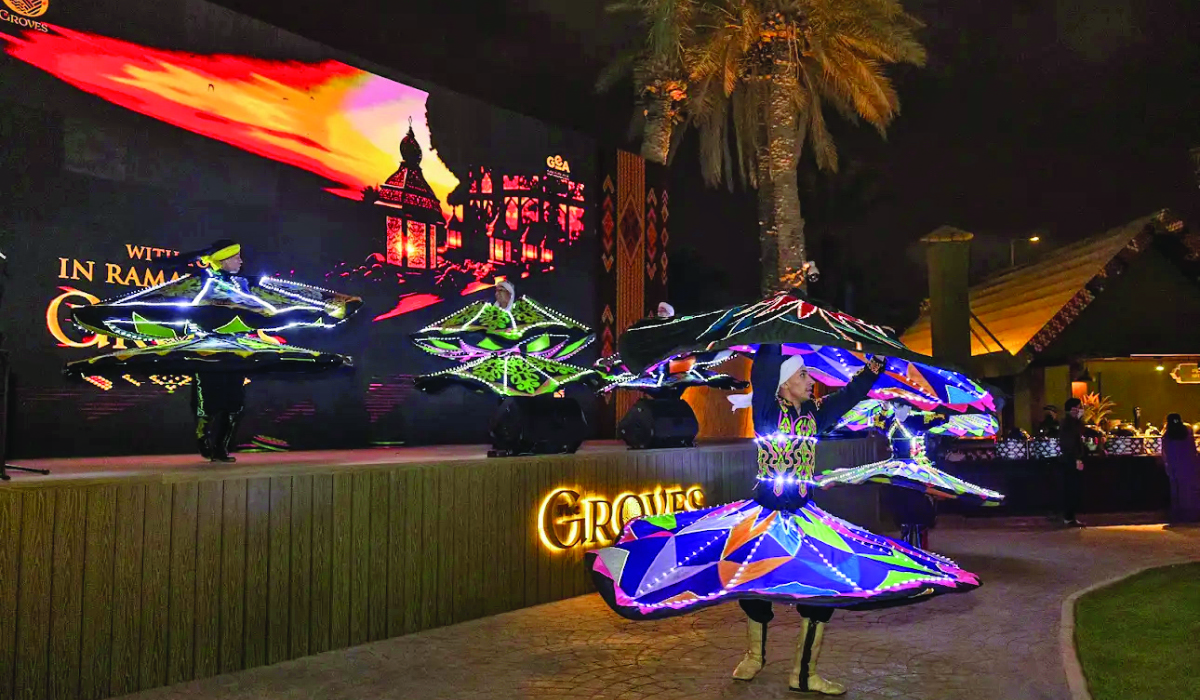
By night, the village comes alive with the glow of warm lights illuminating its bustling Route 66-inspired street. Visitors can explore food stalls serving hearty barbecue dishes, shop for souvenirs in rustic boutiques, or simply take in the atmosphere.
Children can run through haystack play areas while their parents enjoy an evening of live performances and cowboy-themed music.
It’s like being part of a movie. The energy, the performan- ces, and the attention to detail are outstanding.
Salem Al-Qahtani, Southwest Village visitor
For those seeking a more sophisticated escape, The Groves in Al-Rafiah offers a tranquil yet luxurious retreat. Nestled among lush greenery and centered around the serene Groves Lake, this destination combines fine dining, boutique shopping, and carefully curated entertainment to create a memorable experience.
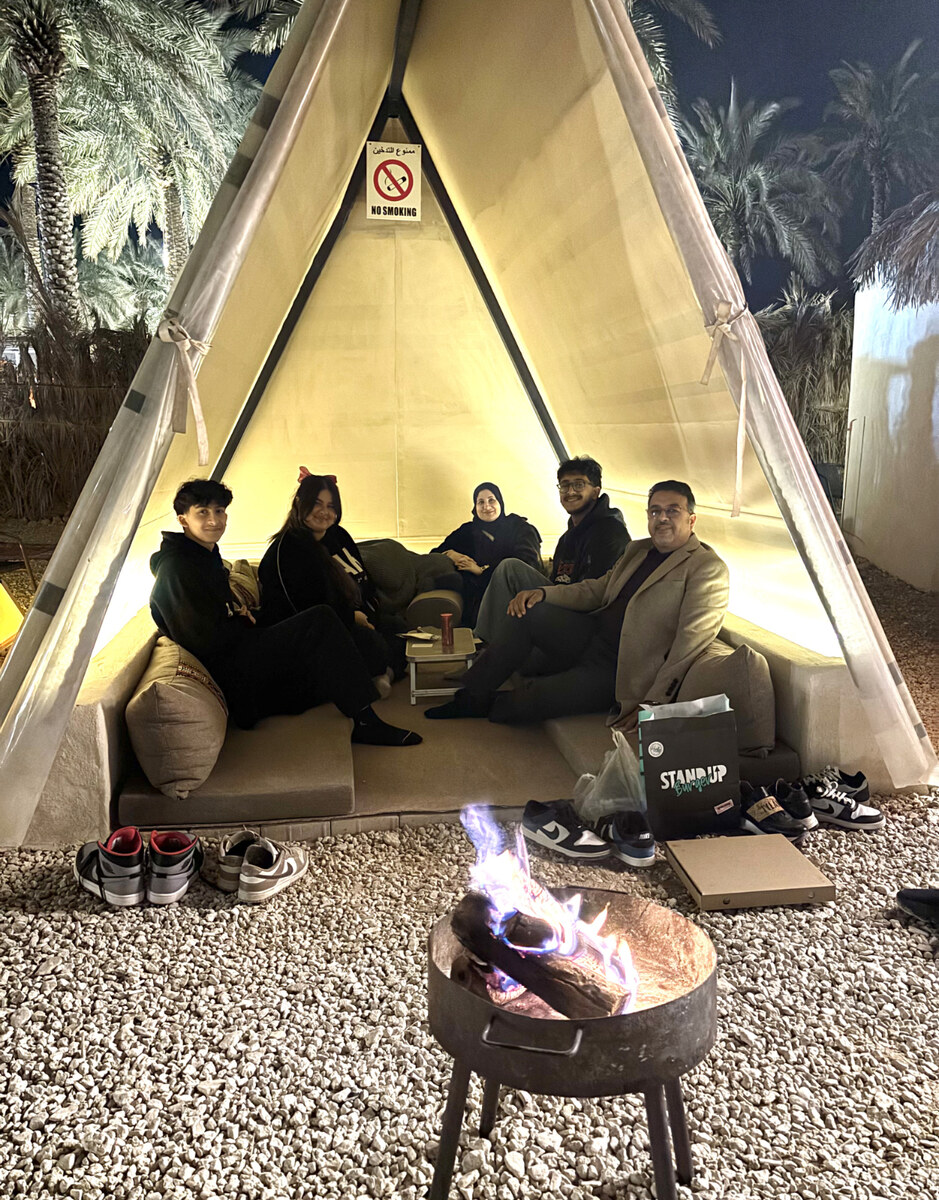
At the heart of The Groves is its iconic bridge, leading visitors to a 360-degree stage that regularly hosts live performances. The soft glow of lights reflected on the lake adds a touch of romance, making it a favorite among couples and families alike.
“We came for the performances, but it’s the atmosphere that keeps us here,” said Rania Banaser, who visited with her family. “Every corner feels like it’s been designed for relaxation and beauty.”
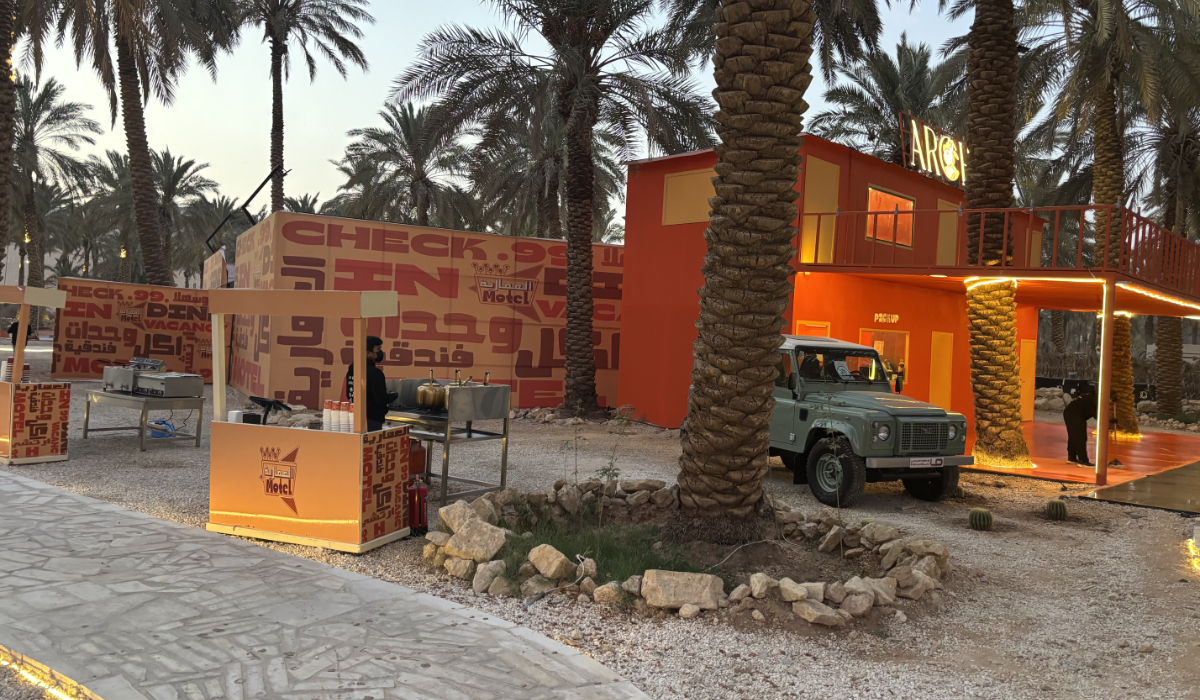
Culinary offerings at The Groves are varied: from Vida Vera’s fusion of Italian and Japanese flavors to Hawanem’s Middle Eastern-inspired dishes, every meal is an experience in itself.
For pet owners, the Luca Park dog area provides a safe space for the animals to play. “It’s rare to find a place that caters to everyone, including pets,” said Banaser.
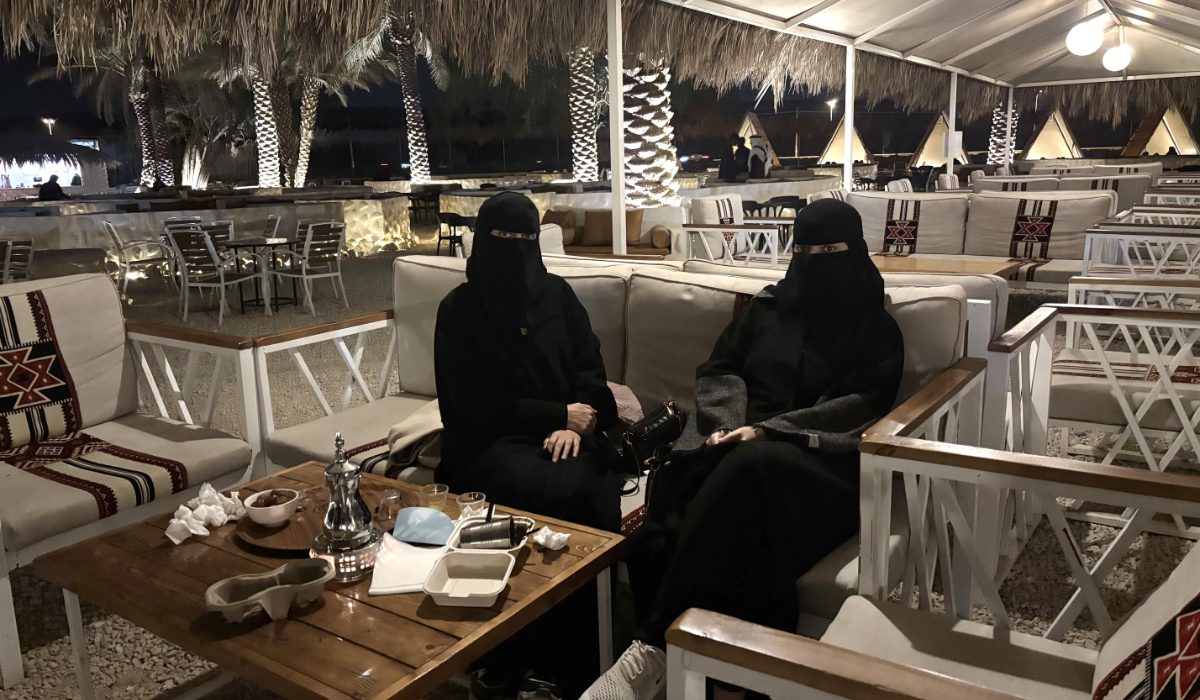
Dakkah Winter has quickly become a favorite among families looking for a relaxing yet engaging destination. With its softly lit palm trees, boutique shops, and cozy food stalls, the atmosphere is warm and welcoming.
One of the most praised aspects of Dakkah Winter is the thoughtfully designed seating arrangements. Guests can choose between open-air settings under the starry skies or private tents surrounded by the warmth of fire pits, making it a perfect spot for intimate gatherings.
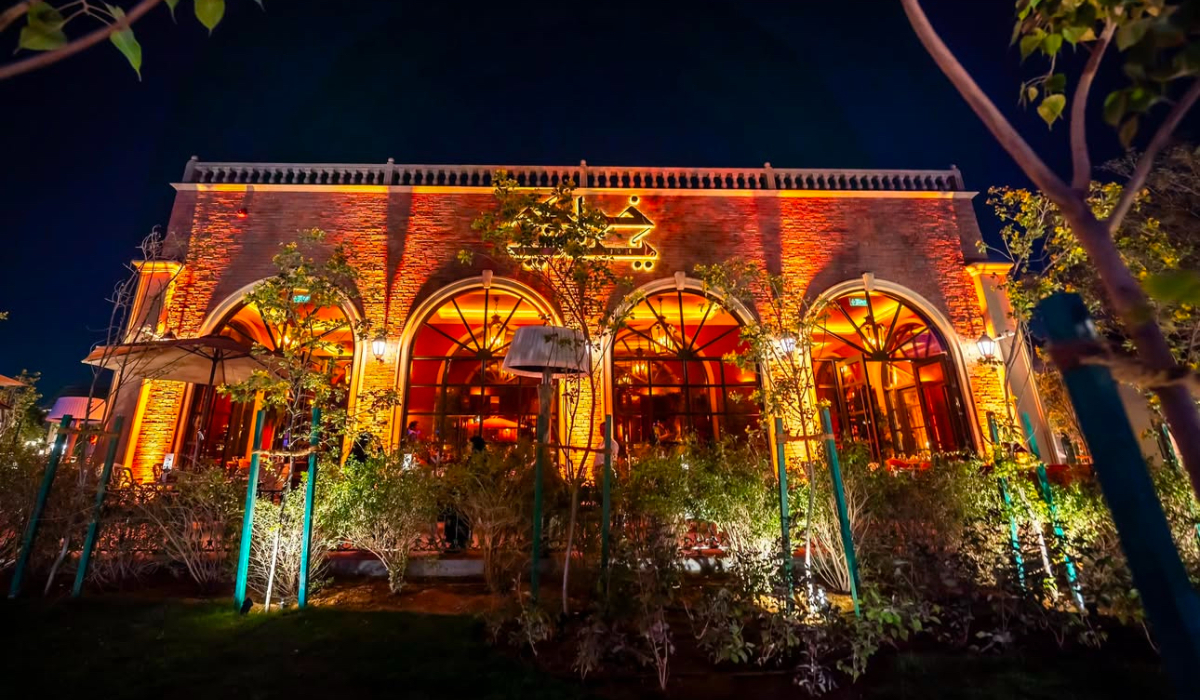
Families often gather around the crackling firewood, enjoying the serene environment and the crisp winter air.
“I think this place is really nice. I don’t think I’ve ever seen a place like this,” said Malak Hassan. “The price range is really good because it's not a typical spot where you can hang out. You can come with family and friends and it’s such an enjoyable place.”
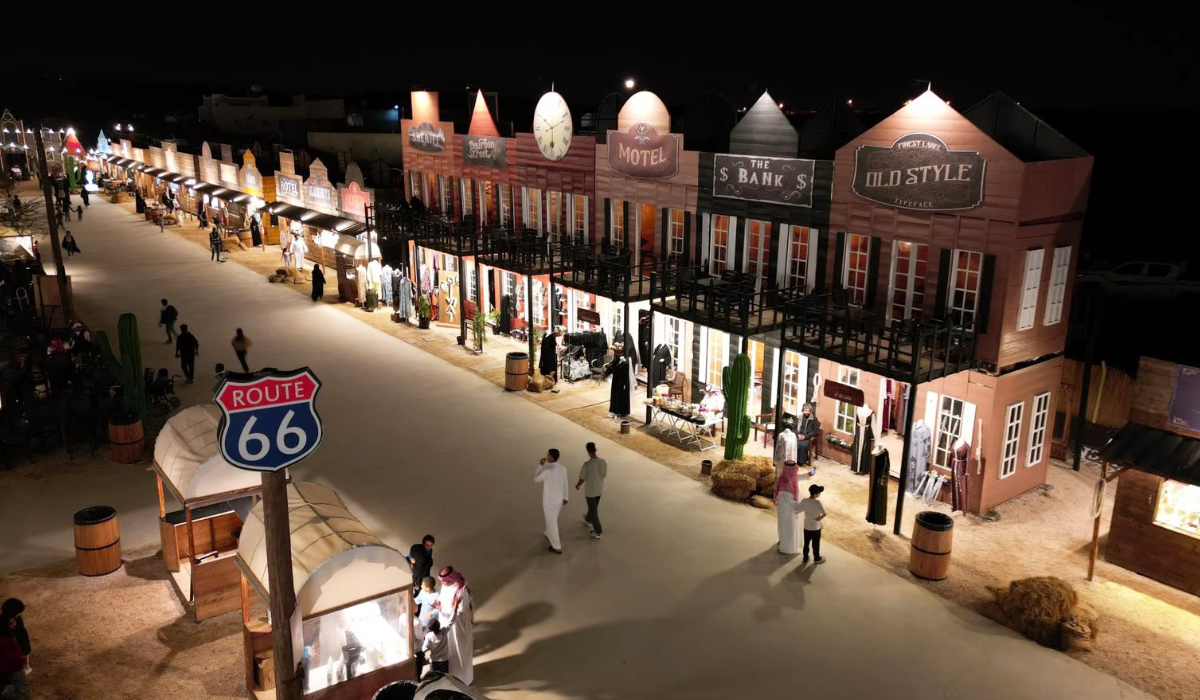
Parents can unwind over a cup of steaming Arabic coffee while children enjoy the supervised play area, designed to keep them entertained for hours.
Sabah Al-Qahtani, one of the visitors, said: “I was surprised by the location. I liked the entrance and the sitting area and everything is amazing and I will definitely come again.”
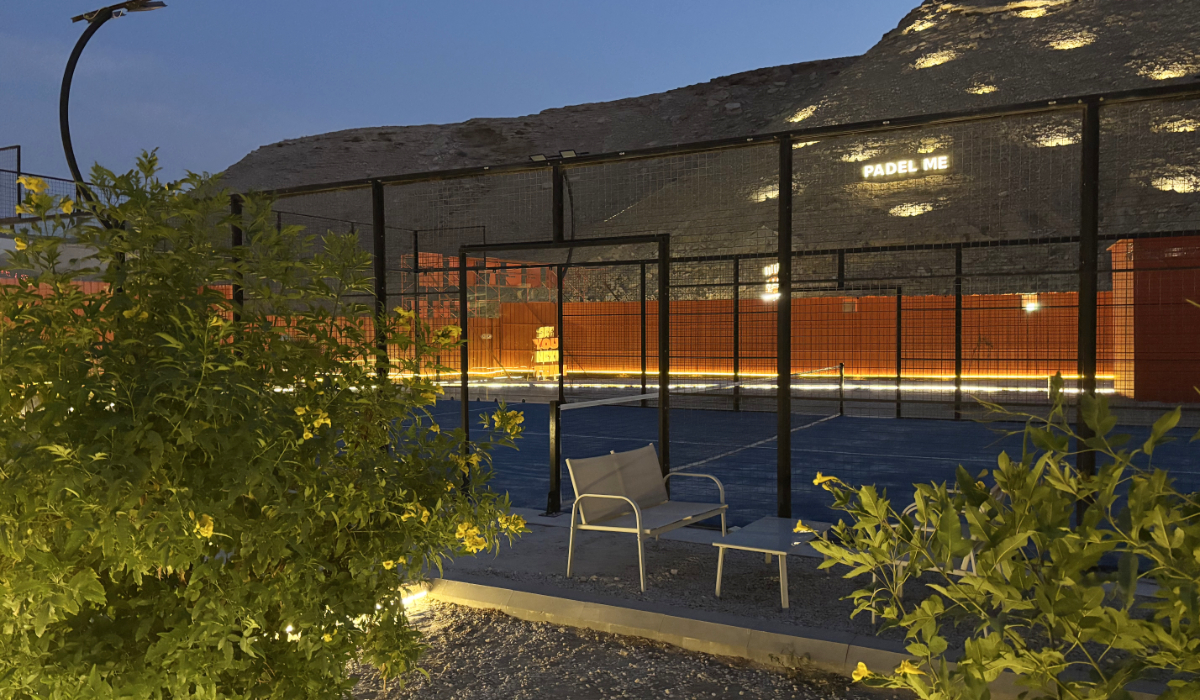
For a dose of nostalgia mixed with adventure, Ammariyah Motel is the place to go. With its vibrant orange and red hues and 1950s-inspired decor, the motel offers visitors an engaging escape from the ordinary.
Upon arrival, guests are greeted by retro signage and colorful seating areas, setting the stage for an evening of fun. The activities at Ammariyah Motel cater to both the adventurous and the more relaxed.
Guests can test their skills at paddle tennis, or simply sit back under the stars. Dining is a highlight, with the pizza bar serving freshly baked pizzas and the outdoor grill offering gourmet burgers that draw praise from visitors.
From the immersive Wild West charm of Southwest Village to the upscale elegance of The Groves, the cozy retreat of Dakkah Winter, and the retro-inspired fun at Ammariyah Motel, a unique experience that captures the spirit of the season is offered to those visiting.
Revving up history: Saudi Arabia’s Hail festival spotlights classic cars, cultural charm

- Inspired by Saudi Vision 2030 and the designation of 2025 as the “Year of Handicrafts,” the festival celebrated traditional skills, and highlighted their cultural and economic significance
RIYADH: A display of vintage and classic automobiles, some made more than 60 years ago, was a major draw for visitors at the Handicrafts Festival in Hail.
Visitors and car enthusiasts from the Kingdom and abroad gathered to admire the eye-catching vehicles, Saudi Press Agency reported.

The meticulously maintained cars, including several GMC and Chevrolet models, are their owners’ prized possessions, and offer a glimpse into the past.
Naif Amim Al-Janfawi, a collector of vintage cars, said: “The festival provided a wonderful opportunity to showcase these treasures.”

The festival also immersed visitors in the rich heritage of the Hail region, showcasing traditional food, clothing, and customs, while also featuring a variety of cultural performances and folk arts from within and beyond the area.
A pavilion housing wooden doors and gypsum carvings proved to be a popular attraction that showcased the craftsmanship involved in creating the traditional works.

Inspired by Saudi Vision 2030 and the designation of 2025 as the “Year of Handicrafts,” the festival celebrated traditional skills, and highlighted their cultural and economic significance.
Craftsman Abdullah Al-Khazam said that creating wooden doors and carvings, including those of old Hail houses made from tamarisk and other timbers, demanded exceptional skill and attention to detail.
The pavilion also featured Islamic plaster engravings inspired by the local environment, a hallmark of Najdi architecture used to adorn buildings, entrances, and majlis, or council rooms.
Also on display were drawings and engravings from ancient clay houses, including Qur’anic verses, sayings, decorative patterns, and depictions of trees and plants.

















